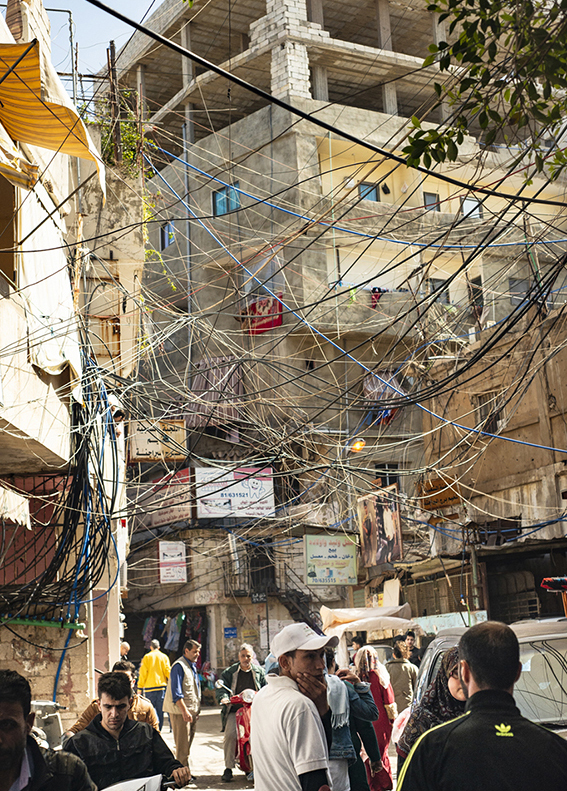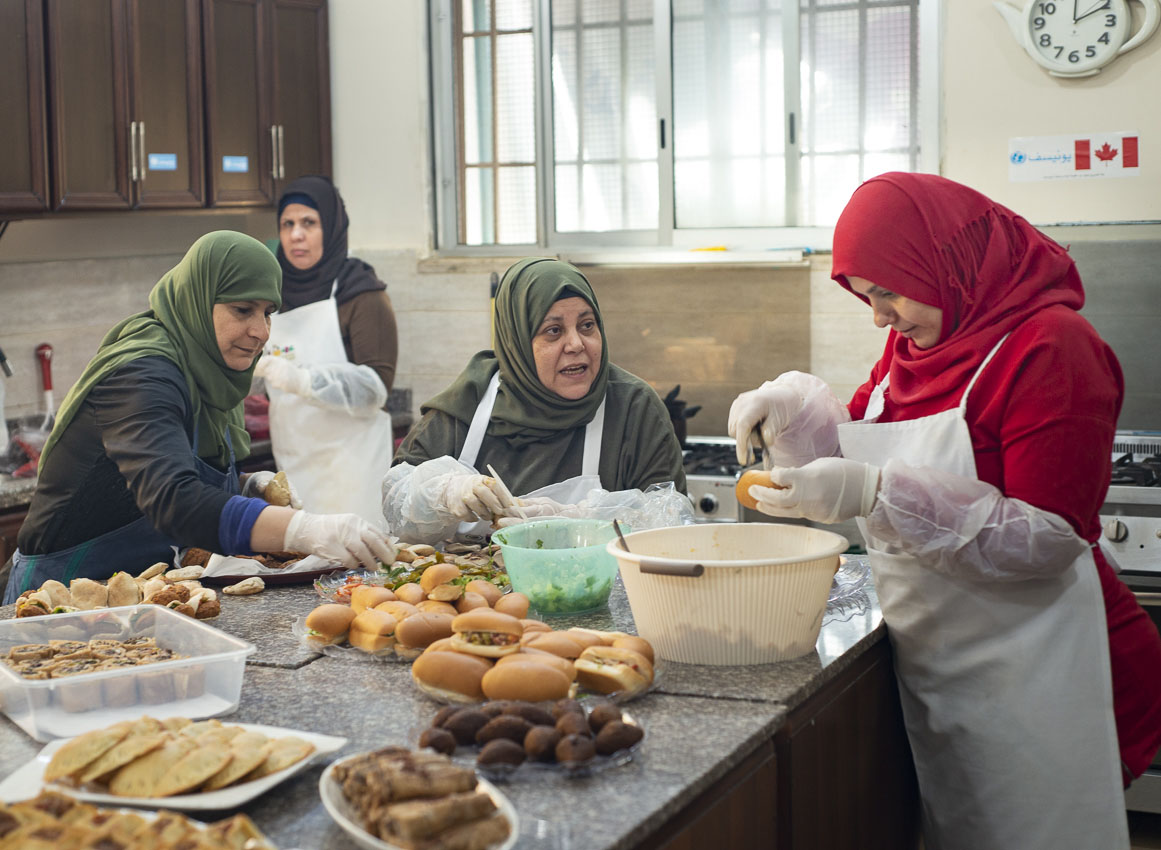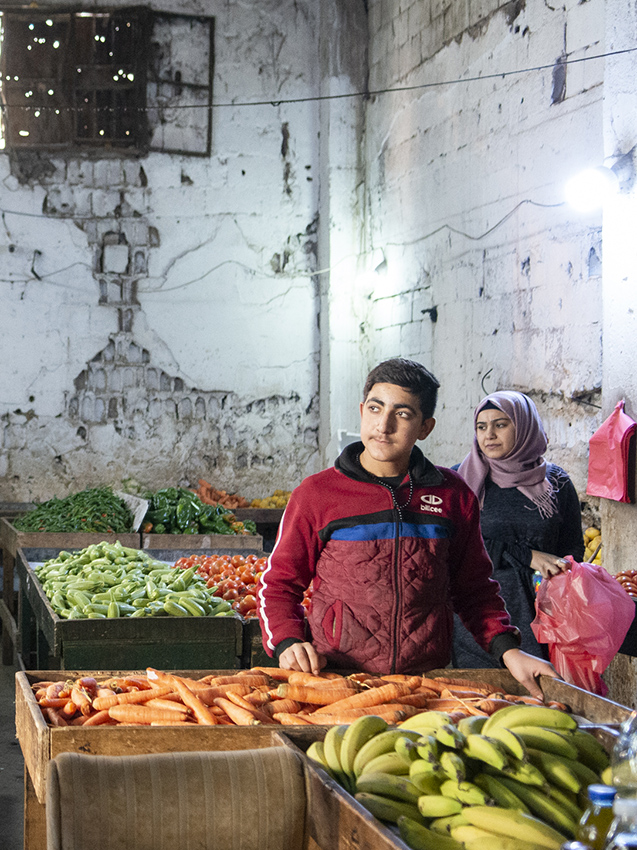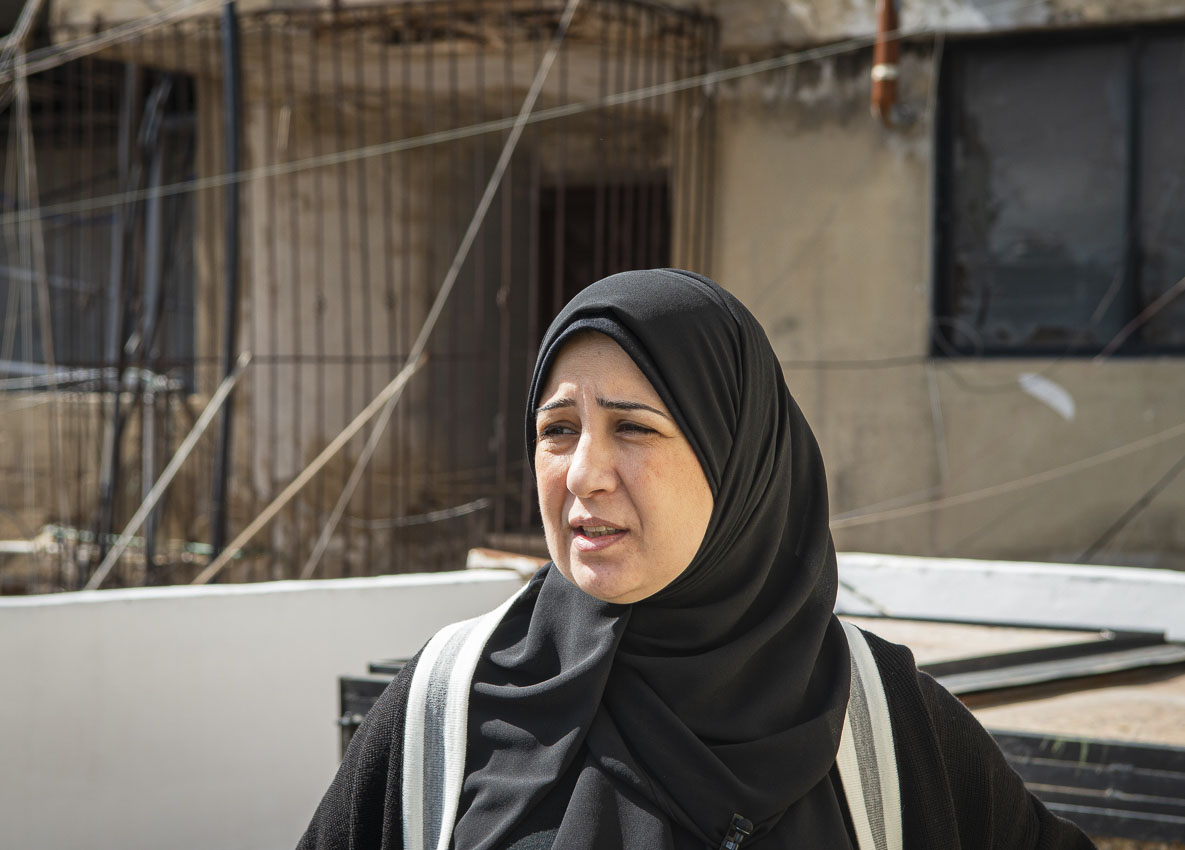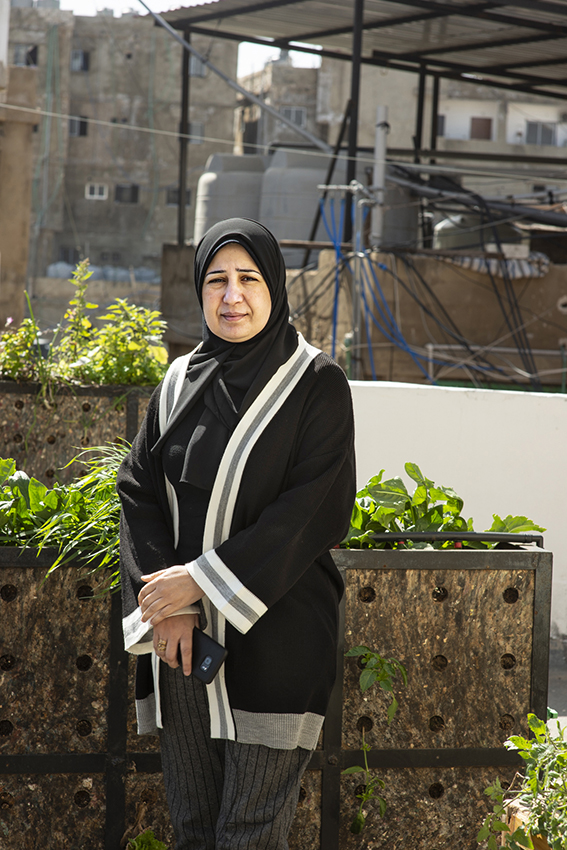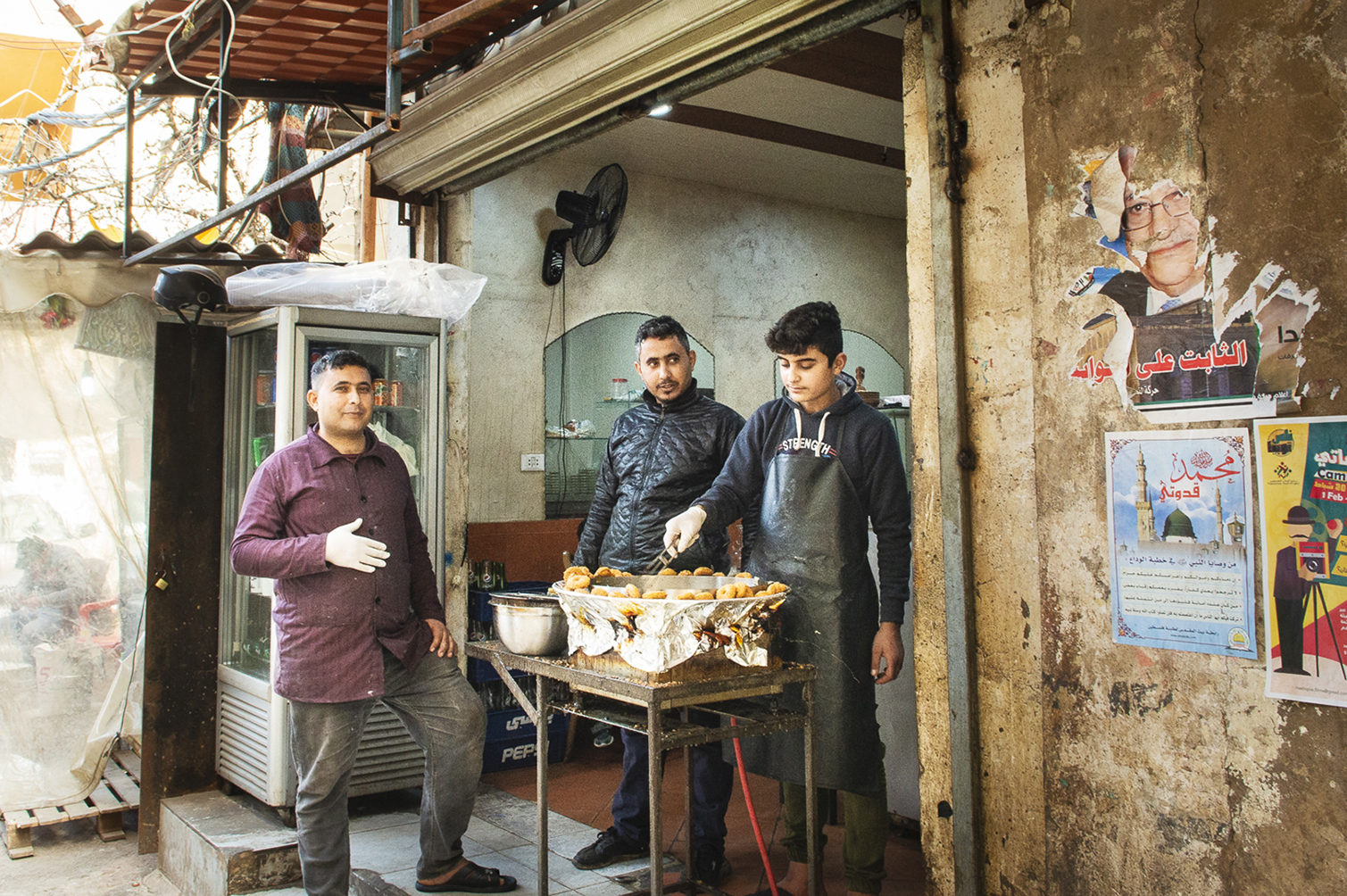Beirut, Libanon
My short story about a project in a refugee camp in Beirut.
'56 percent of refugees are unemployed and the jobs they do have are often unskilled positions that offer little job security. With insufficient access to education, and few opportunities for personal growth, it is exceptionally hard for vulnerable refugees to obtain the skills they require. This is especially true for female refugees within the camps, as they routinely face gender-based discrimination, and find it particularly hard to obtain paid work opportunities.'
In february 2019 I visited a refugee camp; Burj el Barajneh and ‘The Womens Program Association’ inside the camp in the south of Beirut.
We drive to Burj el Barajneh through some the crazy traffic of the Libanese capital Beirut.
Noura is my guide and driver. She is Political Scientist in her late twenties and works for Souk el Tayebsoukeltayeb.com
This organisation exists since 2004 and is all about raising dialogue and awareness through sustainable agriculture and food. In my previous post you can read more about Souk El Tayeb.
One of their projects is the cooperation with ‘The Womens Program Association’ inside the refugee camp. Noura wants to show me the work they support inside the refugee camp. wpa-lebanon.org
Noura tells me not to take photos or talk to anybody once inside the camp. “We always need to go with someone from the camp itself to guide us!” She tells me it is a huge neighbourhood, more than 10000 people, not only Palestinians, but also Syrians and Somalian. The cooperating of Souk el Tayeb and the women of WPA inside Burj el Barajneh started with a 'Womens led food-truck' in 2015.
When we park the car I see streets filled with electricity cables, posters of Ayatollah, lot's of graffiti, old cars and unfinished buildings. Men, women, motorcycles, cats dogs and children pass us in the narrow street leading to the building of WPA. It is the highest concrete building in between smaller shops , car garages and other small businesses and it has a huge Unisef logo on it.
We meet up with the Executive Director of the Womens Programm Association (WPA) Mariam Shaar in her office. She is born and raised inside the camp. "My Palestinian family have been living here for seventy years” she tells us.
Mariam explains that the main goal of WPA is to empower the Palestinian refugees and mostly women.
In 2013 Soufra catering company was founded. Women from the camp cook and they cater to NGO’s and schools. “Women now even sell their delicious dishes through a Refugee Food Truck to people in the city of Beirut,” Mariam tells us proudly smiling. “My dream is to empower refugee women, not only financially but most of all on a personal and social level.”
Soufra has created a tight community for women where they can discuss their problems amongst other women. We meetup with the group of women cooking in a large kitchen. And we see them giggling and laughing together while they prepare sweet rolls filled with almond and honey for a desert.
Many refugees are not able to work in the formal labor market in most of Libanon. “Mariam has found the opportunity to empower us with business skills, some income and personal confidence,” a young woman named Sarah tells me with a perfect English accent. Soufra has around forty employees now already.
In 2015 a Refugee Food Truck was lounged through a kickstarter campaign.
Mariam: “I remember when I first started talking about this idea people said to me "you are never going to pull this together," even my parents told me this was a crazy idea.” Despite the facing challenges Mariam always strives for ways to better her community, the young girls Sarah adds. "My dream now is to startup the first Cafe inside the camp!" Mariam continuous.
“It encourages me that many parents nowadays ask us if their daughter can work here. They want their daughters to be ambitious and learn computer skills and marketing.”
“That is what makes us persistent in achieving our goals.”
When we follow her up to the rooftop we see lots of green in the middle of concrete, electricity cables and corrugated iron rooftops. “Our big surprise,” Mariam says smiling “we grow our own vegetables and herbs on this rooftop.”
A young women we meet on our way out tells us she only works here for one week. She applied via facebook. Mariam explains facebook is convenient because in this way we know what the social network of the applicant is.
Miriam has her next meeting and we continue our visit inside the camp with one of her assistants who lives here.
We enter a grocery shop with egg-boxes pilled up until the ceiling, vegetables, cans of dried food and bottles of water. Shop-owner Said originally from Palestine works here for twenty years.
"It is hard work,” he assures us, even more now that many new refugees mostly from Syria have little to spend.
Just outside Saids shop we buy some almonds from Abis who sits behind the counter in an open market. Abis is nineteen years old and originally from Syria. He tells us about his daily routine. "I works from 7am tot 7pm, and then I go home. Sometimes I go outside and smoke shisha (syrupy tobacco mix) with the boys in the evening. We live with tree brothers and tree sisters and my parents, eight in total in a small house. My sister just got married, she is seventeen".
We continue our walk in the main street of Burj el Baragneh as suddenly some men shout at us and wave, pointing to their plates filled with falafel. "You have to taste it!” We pass the busy road filled with motorcycles, cars and staring children to arrive at their stand. The guys tell us they are brothers and they want me to take pictures of them to promote their falafel.
“We are friendly in the camp, tell that to the media!” one of the brothers tells me.
"Most of our family still survive in Syria, in Kobani where they are relatively safe. Kobani is protected by the Kurds and the allies fighting the IS. “I am in contact with them and I go there when road is safe for me to travel.” We taste the falafel and they pour us some tea, "we should stay and sit with them," they insist.
When we walk back to the car Noura says: “People see Lebanon in the media as a place that is not safe for anybody to live in, and a refugee-camp even worse, but as you could see most people just want to make something out of their live.
The crime rate is very low. People learned to survive after several wars by working together, by trusting and giving trust.
And women play a big role in this community feeling. We hope keep empowering these women to work together. "To learn that differences in religion and cultural background are just invented by people themselves. These differences do not exists."

